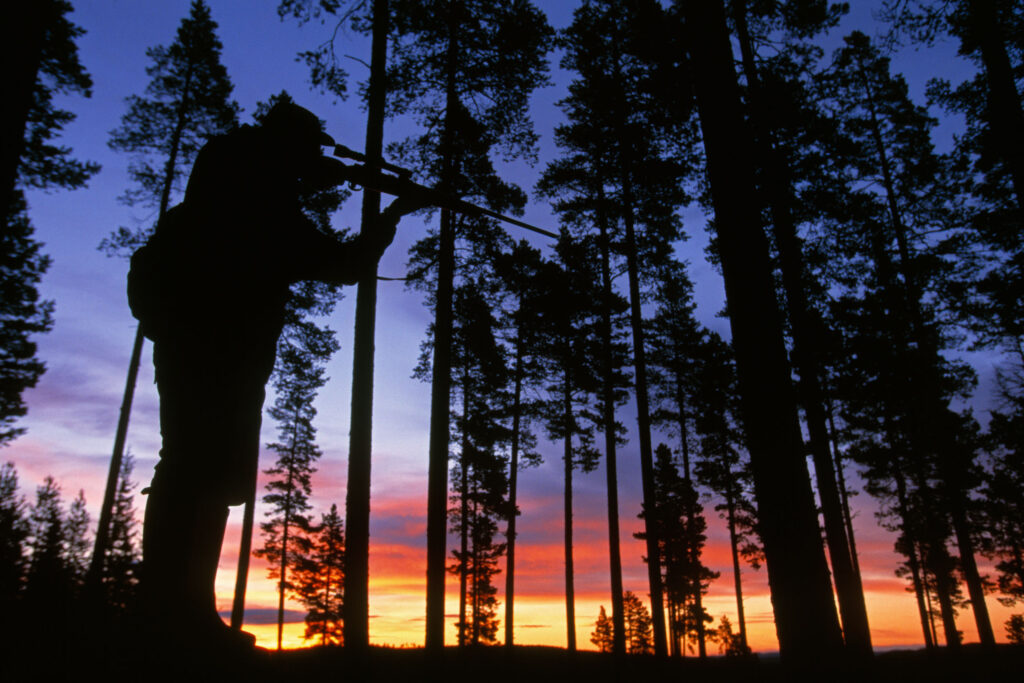In the popular children’s books by world-famous Swedish author and animal advocate Astrid Lindgren one can follow Pippi Longstocking’s animal companions. The latest to make it to the international scene is Ronja, the Robber’s Daughter, which was recently filmed for Netflix.
In the six-episode long series, the country’s wilderness is portrayed idyllically, with wildlife both revered and cherished, as the late author would have approved of. Little does the viewer know that in Sweden, wildlife is not even protected by the law that protects other fauna such as domestic or farm animals. In Sweden, wild animals are excluded from lawful protection.
The neighboring Scandinavian countries Norway and Denmark have had wild animals included in the animal welfare law for years. Finland joined them this year, after a citizen’s initiative gathered over 50 000 signatures and thereby qualified for legislation by the Parliament. It took but months before the law was passed.
In Sweden, however, the only place wildlife has in the legal system is in the hunting law where it says that “the game must not be subjected to unnecessary suffering”. This sentence is the only mention of the matter, and the law does not even define what “unnecessary suffering” means.
This is perhaps why tourists may pass Swedish traditional iron ore red painted houses on the countryside and be romantically enamored with the landscape, while seconds later see their sentiments turn to shock when they see orange-white furs lining the walls of the barns. For some hunters it is still a tradition to hang dead foxes on the buildings.
The animals are considered vermin since they prey on other game that the hunting interest wants for themselves, like certain birds and small deer. While this is an ecological function the foxes are performing, which has been granted them by evolution, they are in turn hunted in something called “predator control”.
This practice, made for eliminating the human hunter’s competition, has even become a yearly contest called the Predator Campaign (Rovdjurskampanjen). In this competition, hunters are given points and awards for killing as many foxes, martens, minks, ferrets, magpies, crows, jackdaws, and seagulls. The winner is crowned "Game Warden of the Year" and has usually killed several hundred individuals.
A proper law protecting wildlife would not allow for such practices and blatant disregard for wildlife. This is why a law is needed and, most likely, why it is still lacking. Some interest group wants to keep the status quo.
Training of dogs on wildlife
Sweden has several other unpleasant treatments for wild animals. The animal welfare regulation allows training on living badgers, which means that official training regiments include dogs stressing badgers in tunnels where the badger is lowered to be a training target.
The Swedish Environmental Protection Agency and the Swedish Agricultural Agency jointly proposed to ban this in 2020, but after hard criticism from the Swedish Hunters' Association, the ban was never adopted. Once again, the failure to protect wildlife confirmed the hunting interest’s deadlock on all matters related to improving the living conditions of wildlife.
Perhaps the most appalling of practices in Sweden includes the training of dogs on free roaming wildlife. While England banned fox hunting in 2004 (and Scotland two years prior), Sweden’s hunting associations are urging the practice to proliferate in not only the hunting but also in practicing for the hunting. Hares and foxes are allowed to be pursued for hours without restriction during half the year just for training purposes.
This occurs during the colder season where the animals are in dire need of every calorie obtained. Running for hours evading a pursuing dog, risks depleting them of essential calories needed to stay warm and survive the winter, when food is scarce. In other words, to appease the hunters training their dogs, wildlife is at the very best stressed for hours. At the worst, wildlife is many times forced to die an agonizing death due to starvation.
The fact that red-listed species, such as the four large carnivores brown bear, wolf, lynx, and wolverine, are hunted in many hundreds yearly in Sweden, has been a reason for the infringement procedure on wolf hunting launched in 2015 by the European Commission. Sweden violates the EU's species and habitats directive as well as the Bern Convention. The infringement is still on-going.
But apart from the hunt itself, wild animals are also allowed to be trained on. For instance, the lynx is commonly “treed” in a practice where it is chased by two dogs through the forest until it cannot run anymore and seeks shelter in a tree. This defense mechanism was created to outrun competing carnivores like packs of wolves, but against homo sapiens with their weapons, this is a literally a dead-end.
While the death of 139 lynxes during legal culling took place in March and April this year (and 188 the year before that), the whole month of February is yearly dedicated to legally training dogs on these animals.
Time for protecting wildlife
The same law which says that game must not be subjected to unnecessary suffering permits chasing animals and stressing them enormously. How this is possible, few people other than the most ardent hunting lobbyists understand.
Since Sweden’s old dreams of being a nature friendly country are slowly but surely deteriorating, like an old children’s book from a discarded library, hope is once again turned to the EU that it will maintain the strict protection status of endangered species such as lynxes and wolves. For this to happen the Belgian EU Presidency must overcome the opposition of Sweden and other countries.
If not, the EU cannot consider itself more than the brutal colonizers of the past that we frown upon, having added 50 percent more mammal species to the red list during only 20 years.
A law protecting wildlife’s rights is not only morally essential, but also literally needed if we as a species are intending to stick around. The species crisis is considered the fourth biggest threat to human societies in ten years by the World Economic Forum. Protecting wildlife is as much about them as it is about protecting the lives of our future generations. One can only hope we call for action while we still can.


